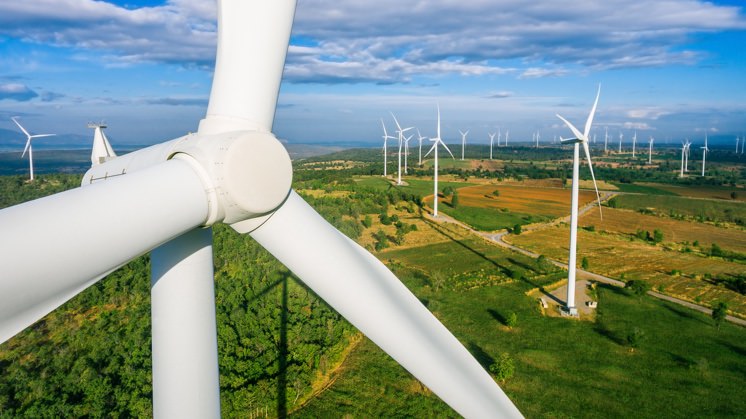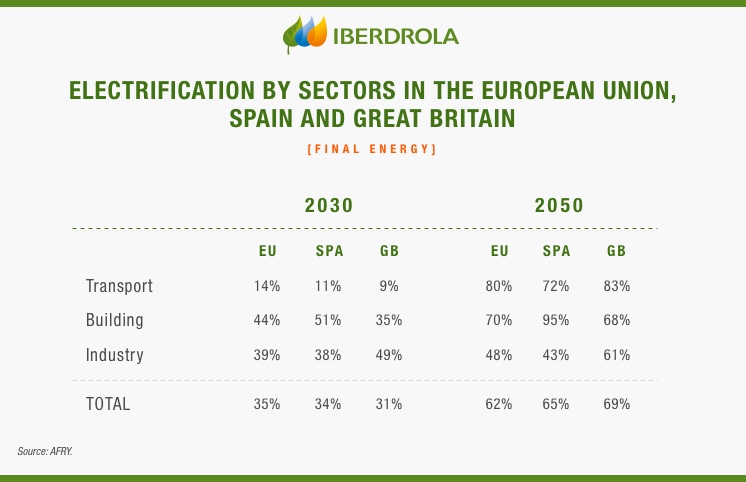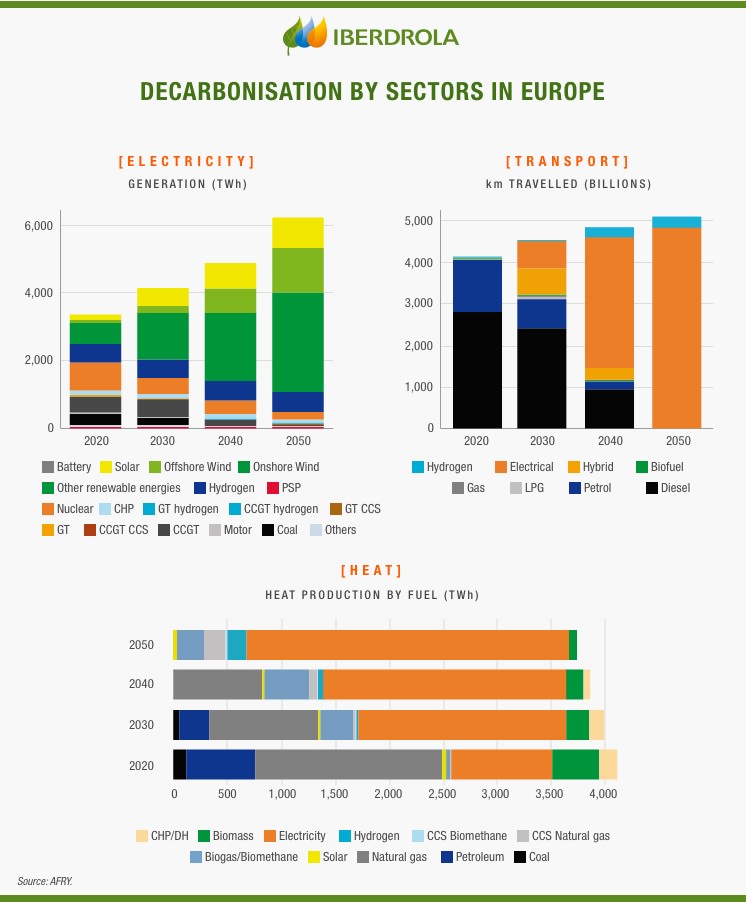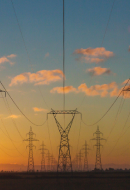Decarbonisation in the European Union
Electricity with renewables and electrification, essential for the decarbonisation of energy in Europe by 2050
The electrification of transport and residential heating and the obtaining of electricity through renewable energies will be the key factors in decarbonising the European economy by 2050. This is the main conclusion that can be drawn from the study prepared by the consultancy AFRY (formerly POYRY) for Iberdrola, which establishes a roadmap for the energy sector on the continent.

Decarbonisation is one of the main challenges facing society in general and the energy sector in particular in the fight against climate change. Through economic optimisation models, the consultancy AFRY obtains the most efficient technologies to achieve complete decarbonisation of energy by 2050 in the European Union (EU) and in a recent report  External link, opens in new window. sets out the optimal route to achieve this.
External link, opens in new window. sets out the optimal route to achieve this.
The study shows an electrification scenario affecting end consumption of energy that by 2050 would reach 62 % in the EU (65 % in Spain and 69 % in the GB) compared to current values of close to 20 %, and a reduction in CO2 emissions of 59 % by 2030 in the EU, compared to the current target of 40 % and the debate on whether to increase it to 50 % or 55 %, mainly due to the gradual entry of renewable energies which, based on efficiency criteria, are replacing fossil fuels.

The elements of the energy transition
Involvement in the process of change towards a decarbonised economy that replaces production with polluting sources with clean energy, such as that offered by renewables, is a task that involves everyone. The main elements of this energy transition would be:
 Electricity
Electricity
By 2050 demand would have doubled due to the electrification and generation required to produce green hydrogen. Consequently, the installed capacity would have tripled, almost entirely with renewables, with a slight contribution of hydrogen in certain regions. All this, with a modest increase in interconnections and increasingly flexible demand.
 Transport
Transport
Energy transition requires significant investments in the modernisation, digitalisation and automation of networks to ensure an efficient, safe and reliable transition. Electricity grids are therefore updated and expanded to enable a smart and two-way response to demand.
 Transport
Transport
Electrification is complete in medium and light vehicles, while in heavy long-haul vehicles electrification is complemented by hydrogen vehicles. The mobility of the future seeks to adapt to today's world and at the same time protect it.
 Heat
Heat
Electrification through heat pumps plays a key role in decarbonising heating. The use of hybrid heat pumps in very cold regions is being evaluated.

 SEE INFOGRAPHIC: Decarbonisation by sectors in Europe [PDF] External link, opens in new window.
SEE INFOGRAPHIC: Decarbonisation by sectors in Europe [PDF] External link, opens in new window.
The results drawn from this work are very relevant in view of the multiple debates that will take place on this matter in the EU and in its various Member States. The main thing is that it shows that the decarbonisation of the European energy system by 2050 is, despite the company's ambitious approach, possible, but for its achievement it is necessary to urgently implement the measures that facilitate that goal. Looking ahead to 2030 these measures need to be equally ambitious, especially in those sectors that already have competitive technologies. For example, policies are required for extensive electrification of transport and heat, which would allow a very high penetration of renewable generation and a notable reduction in emissions.
This study strongly supports the orientation of the energy policy that is being led by the EU and countries such as Spain and the United Kingdom, which is focused on achieving decarbonisation by 2050 and, to that end, on raising the intermediate objective by 2030. Also, the European Green Deal promoted by the EU, the Integrated National Plan for Energy and Climate 2021-2030 in Spain and the strategy established in Great Britain to achieve climate neutrality by 2050 could be the basis for a Green Recovery after the crisis caused by the COVID-19 pandemic.

Decarbonisation
Regulatory principles and actions to fight climate change.

Electrification
Find out how it contributes to each sector and why it is key to tackling climate change.

The IEA heralds the ‘Age of Electricity’
It has launched a report that emphasises the role of electricity in the new energy scenario.




